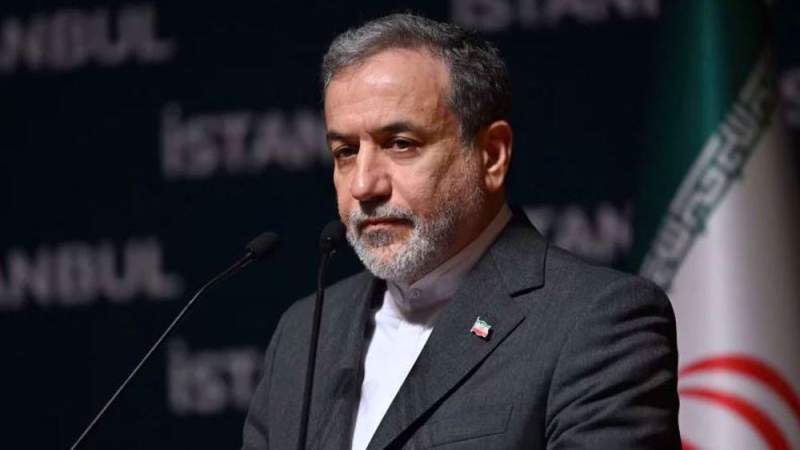Iran’s Foreign Minister Blames ‘Impossible’ Demands for Snapback Deadlock

News - Middle East: Iran’s foreign minister has blamed the “completely unreasonable and impossible” demands put forward by the United States and its European allies for the failure in resolving the snapback sanctions dispute.
Speaking at the end of his visit to the UN headquarters in New York, Abbas Araghchi said Iran can handle the economic and legal challenges posed by the activation of the mechanism.
The minister said he engaged in multiple meetings with the E3, the UN secretary‑general, and the chief of the International Atomic Energy Agency (IAEA) over the past week in an effort to find middle ground.
Araghchi said Tehran had put forward “entirely reasonable” proposals, acknowledged as such even by European officials, but, he added, Washington’s excessive demands and European alignment left no room for agreement.
“Efforts were made to reach a compromise between the two sides’ proposals, but due to the excessive demands of the Americans, and the support given to them by the European countries, we could not reach a compromise.”
“Why? Because we are here to defend the rights and interests of the Iranian people, and certainly no agreement that does not secure Iran’s interests will ever be acceptable to us.”
The outcome, Araghchi said, confirmed what Leader of the Islamic Revolution Ayatollah Seyyed Ali Khamenei has long maintained: that negotiations with Washington are “a complete dead end.”
“They thought the monster they created out of the snapback mechanism would frighten us so much that we would be ready to give away any concession. Certainly, that is not the case,” he said.
The minister said no new sanctions beyond those already imposed by the United States would take effect, though political and strategic consequences remain.
‘Iran’s SNSC to decide next steps’
The foreign minister said Iran now faces a legal battle at the United Nations and the UN Security Council, where Russia and China back Tehran’s position that the snapback move is illegal and lacks any legal foundation.
“We are now facing new conditions in the Security Council, the United Nations, and the International Atomic Energy Agency. From our perspective, there was no consensus in the Security Council for the snapback decision to be taken. Russia and China also believe there was no consensus.”
The minister said the matter will be reviewed by Iran’s Supreme National Security Council (SNSC) and its nuclear committee, which will decide the country’s next steps.
Araghchi expressed confidence that “correct and well-calculated” decisions will be made to safeguard Iran’s national interests.
The dispute over the so-called snapback mechanism goes back to the 2015 nuclear deal (JCPOA), under which Iran accepted confidence-building limits to its nuclear program in exchange for the lifting of UN, US, and EU sanctions.
The agreement was endorsed by UN Security Council Resolution 2231, which also set a timeline for the permanent expiration of nuclear-related restrictions in October 2025.
However, Iran repeatedly complained that the United States, even under former President Barack Obama, was reluctant to allow Tehran to benefit economically from the deal.
In 2018, Washington, under Donald Trump, unilaterally withdrew from the JCPOA and re-imposed sweeping sanctions on Iran.
In response, and after waiting over a year for the European parties to compensate for the US withdrawal, Tehran began gradually reducing its compliance with the nuclear limits in accordance with the JCPOA, while insisting it remained open to negotiations if sanctions were lifted.
The expiration of restrictions in October 2025 was meant to mark the conclusion of a decade-long nuclear dispute and the normalization of Iran’s nuclear status.
But the E3 have sought to prevent this by invoking the deal’s dispute resolution mechanism, which could allow the restoration of anti-Iran sanctions if Tehran were found in violation of its commitments.
Iran maintains that its reduction of commitments was a legal and legitimate response to the US and EU failure to fulfill their obligations, and, therefore, the E3 are in no position to trigger the mechanism.
Russia, China, and certain other countries have backed Iran’s position, declaring that they do not recognize the restoration of anti-Iran sanctions.
Source: Press TV
-
11:40
Fox News, citing US officials: The United States is carrying out airstrikes in Syria
10:51
Palestinian sources: Enemy boats are opening intense fire off the coast of Rafah, south of the Gaza Strip
10:50
Lebanese sources: Machine guns of the Zionist enemy are targeting the outskirts of Aita al-Shaab, south of Lebanon
09:41
Syrian sources: American helicopter aircraft are targeting the areas of Aita and Shiha in the Al-Tibni desert, west of Deir Ezzor
09:40
Almasirah correspondent in Sa'adah: An African migrant was injured by enemy fire in the Afrah area of Munabbih border district





